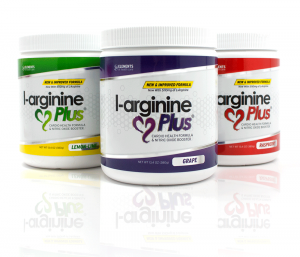If you want to give your heart a boost, you don’t have to go all out at the gym. Find out how moderate exercise helps your heart.
According to a new study appearing in the August issue of Circulation, engaging in more moderate exercise may help many people lower their risk of heart failure. While vigorous exercises may also help reduce your risk, the study suggests that very high amounts may not provide additional benefits.
Moderate-intensity exercises include brisk walking, bicycling, yoga, tennis, basketball, dancing, and swimming recreationally. Furthermore, researchers found that people engaging in moderate-intensity exercises throughout the week also received the most benefits from vigorous physical activity.
Exercise and Heart Failure
 According to the study, regular physical activity may reduce the risk of developing heart failure. In fact, their results show that participants who did between 150 and 300 minutes of moderate-intensity exercise per week had a 63% lower risk of heart failure compared with those who did little to no moderate or vigorous-intensity exercise per week.
According to the study, regular physical activity may reduce the risk of developing heart failure. In fact, their results show that participants who did between 150 and 300 minutes of moderate-intensity exercise per week had a 63% lower risk of heart failure compared with those who did little to no moderate or vigorous-intensity exercise per week.
Moreover, they also found that people who did vigorous-intensity exercise for 75 to 150 minutes had a 66% lower risk of heart failure when compared to sedentary people. These are the minimum recommended amounts of physical activity according to the 2018 Physical Activity Guidelines for Americans.
More Exercise, More Benefits
The results also show that even low levels of activity can lead to heart health benefits. “These findings indicate that every physical movement counts,” explains study author Frederick K. Ho, Ph.D., a lecturer in public health at the University of Glasgow in Glasgow, Scotland. “A leisurely, 10-minute walk is better than sitting and no physical activity.”
However, he adds that “if possible, try to walk a little faster, which increases the intensity and potential benefits of exercise.” In fact, going beyond the recommendations may lead to better protection against heart failure. While the study is observational, it fits with a growing body of evidence regarding exercise and heart-health benefits.
Exercising Regularly
By doing physical activity as simple as walking, you can improve your heart health while doing a low-risk activity. “[Walking] is an easy-to-access activity for individuals across the age and disability spectrum,” explains John Schuna Jr., Ph.D., an associate professor in the College of Public Health and Human Sciences at Oregon State University in Corvallis, Ore.
You can also do other physical activities that you may not consider exercise like yard work, gardening, shoveling snow, and playing with children. What matters is sticking with an exercise program that works for you so you’ll be motivated to keep going. If you need help, surround yourself with a supportive circle of family and friends.
 “Individuals who are surrounded by friends and/or family that are socially supportive of physical activity… will tend to have greater success sticking with regular exercise and physical activity programs,” says Schuna.
“Individuals who are surrounded by friends and/or family that are socially supportive of physical activity… will tend to have greater success sticking with regular exercise and physical activity programs,” says Schuna.
In addition to exercise, you can give your heart an extra boost by taking supplements like L-arginine Plus. Its ingredients promote circulation, blood pressure, cholesterol, and more. Give your heart the support it deserves by engaging in moderate-intensity exercise on a regular basis and taking L-arginine Plus.

